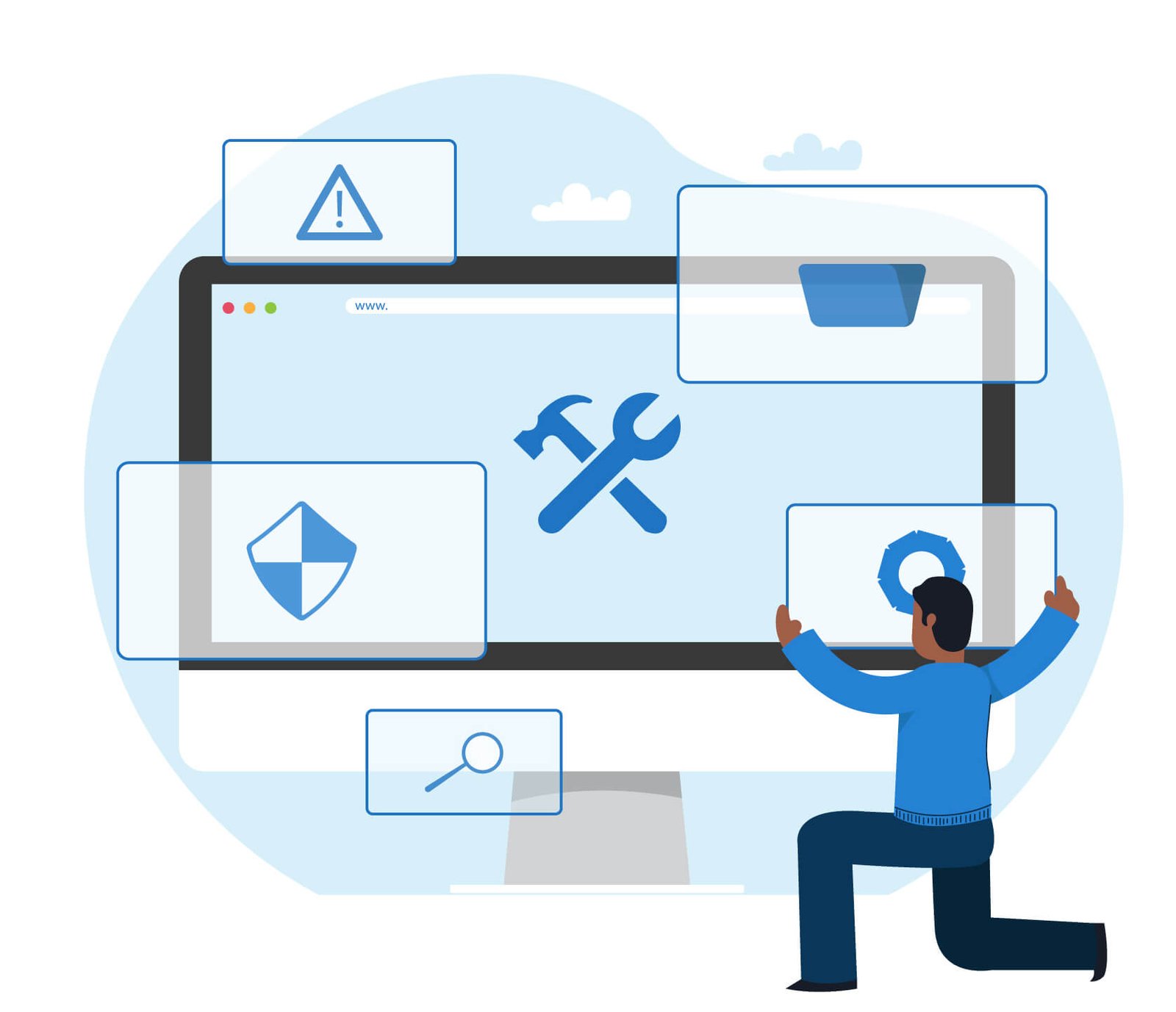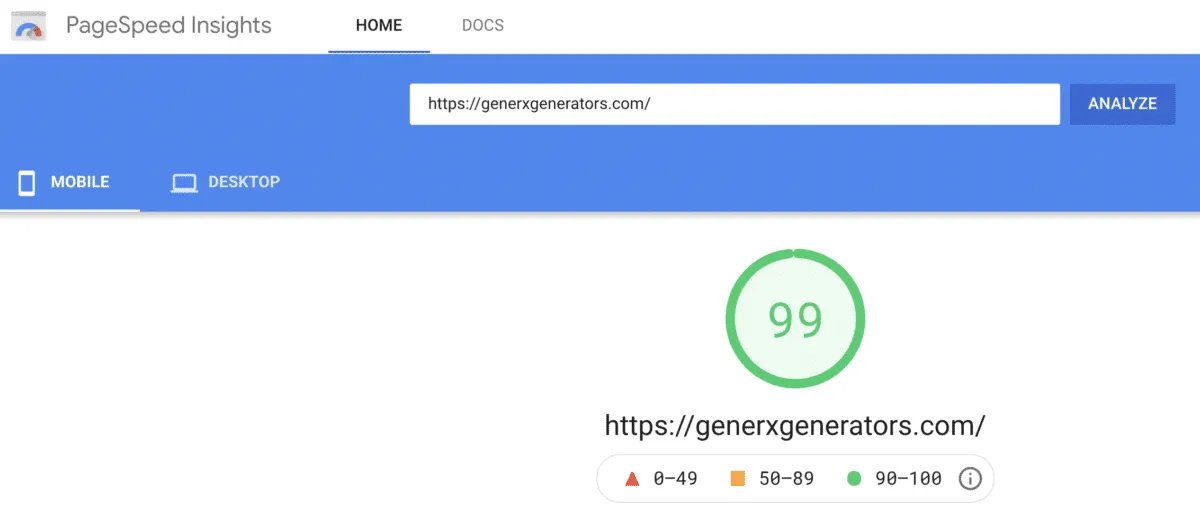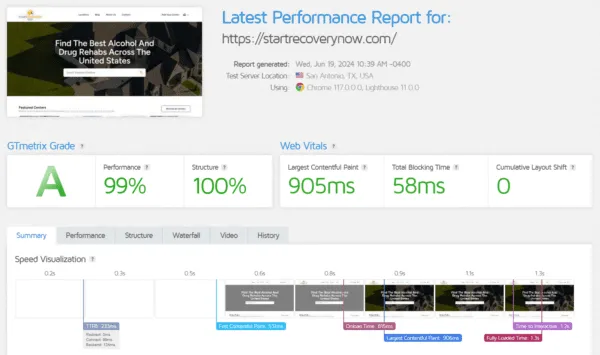WP Speed Optimization Service


The Importance of Fast Loading for SEO
SEO, or search engine optimization, is essential for anyone who wants brand recognition and increased consumer traffic. The purpose of SEO is to increase your ranking on search engines, which makes your website visible to as many people as possible. Considering that over 90% of site traffic comes from Google searches, it’s essential that your site ranks well.
There are several digital marketing tactics to increase your WordPress site performance, such as incorporating keywords, producing high-quality content (or stylesheets) and creating an engaging website layout. However, no matter how beautiful or compelling your website is, no page will survive technical bugs.
Over 50% of mobile users will exit a web page that has a loading speed of over three seconds. While that may seem like a short timeframe, the advancement of technology has gotten people used to speed and convenience. Ultimately, slow websites negatively impact user experience, which translates to a higher bounce rate and a lower search engine ranking across the entire site. It also negatively impacts your reputation; if you can’t offer quality website functionality, how can people trust the quality of your products or services?
A slow website also impacts your SEO. The longer the site loading speed of your website, the lower your ranking factor. WordPress page speed optimization has become more important than ever. A faster site can directly increase both organic traffic and conversion rates.
Working the Algorithm
Currently, Google’s algorithm is mobile-based, meaning Google relies on mobile statistics for indexing and ranking. Thus, your website speed across smartphones and mobile devices impact your ranking. Page load time has been a factor in SEO since 2010, and it became an even bigger one in 2018 when the algorithm underwent a “speed update” that increased the importance of loading time.
As of August 2021, page speed will become an even more important part of Google’s algorithm via the Core Web Vitals update. This new update will be based on three main factors:
- The loading time of the hosting provider
- The amount of time spent on the webserver
- The visual stability of the website (such as the quality of pixels and image files)
As the new update takes place, any website that hopes to succeed needs to adapt. Most web owners should be asking themselves, “How do I increase my site speed?”
The main causes for a slow WordPress website are:
Web Hosting
If your web hosting server configuration isn’t properly set up, it can greatly affect your website speed.
External Scripts
External scripts can also have a huge impact on your website performance since it adds a great amount of data to your loading time.
Wordpress Configuration
If your WordPress site is not configured to serving cached pages, it will overload your server which will cause your website to be slow or even crash.
Bad Plugins
Using a poorly coded plugin can significantly slow down your website.
Page Size
Images on your web page that aren’t optimized for web.
Wordpress Hosting
A good WordPress hosting service is important for your website performance. It is best to choose the one that will best work for you. Shared hosting service providers takes the extra step to optimize your website. However, it may tend to provide a poorer performance because you share the server resources with many other customers or websites. You won’t be able to tell how much resources other customers are using.
Managed WordPress Hosting service provides you with the most optimized server configurations to run WordPress.
Make Your WordPress Website Load Lightning Fast
No website owner wants a low conversion rate that doesn’t offer a return. Some case study that every second delay can cause a loss in conversion, fewer page views, and a decrease in customer satisfaction.
Fortunately, there are methods to help increase your site speed. Below are some of the options you can check that can help your website.

Optimize Your Images

Clean Up the Clutter
WordPress Plugin
Lazy Load

Minify Your Files
Reduce External Scripts
Content Delivery Network
Monitor Bandwidth Usage
Leverage Browser Caching
Fewer Redirects

WordPress Speed Optimization Services for Your Site
Core Web Vitals Optimization
- Daily data backups
- Real-time uptime monitoring
- Daily security scans
- Database optimization
- Core, plug-in and theme updates
- Monthly reporting
For websites that want a higher level of personalized service, we offer a support plan (which includes desk and WooCommerce support) and a Support Pro plan (which comes with unlimited desk help, complete malware removal and daily performance and speed checks).
Once you’ve signed up for an account, our team will conduct a backup, analyze your metrics and update your site as needed. By applying our knowledge of SEO and website optimization, we can ensure your site aligns with any forthcoming updates to the Google algorithm — and if it doesn’t, we’ll execute the necessary changes.
Don’t Have a Plan with Royal Eagle Web?
$139 /Month
- Advanced caching
- Optimized Pagespeed
- File and image compression
- Content delivery network
Already Have a Plan with Royal Eagle Web?
$80 /Month
Partner with the All-in-One WordPress Support Company
For nearly a decade our team of design, development and marketing experts has enabled our clients to reach their highest level of online success. Our experts become an extension of your team, and care about your business goals as much as if they were our own.

